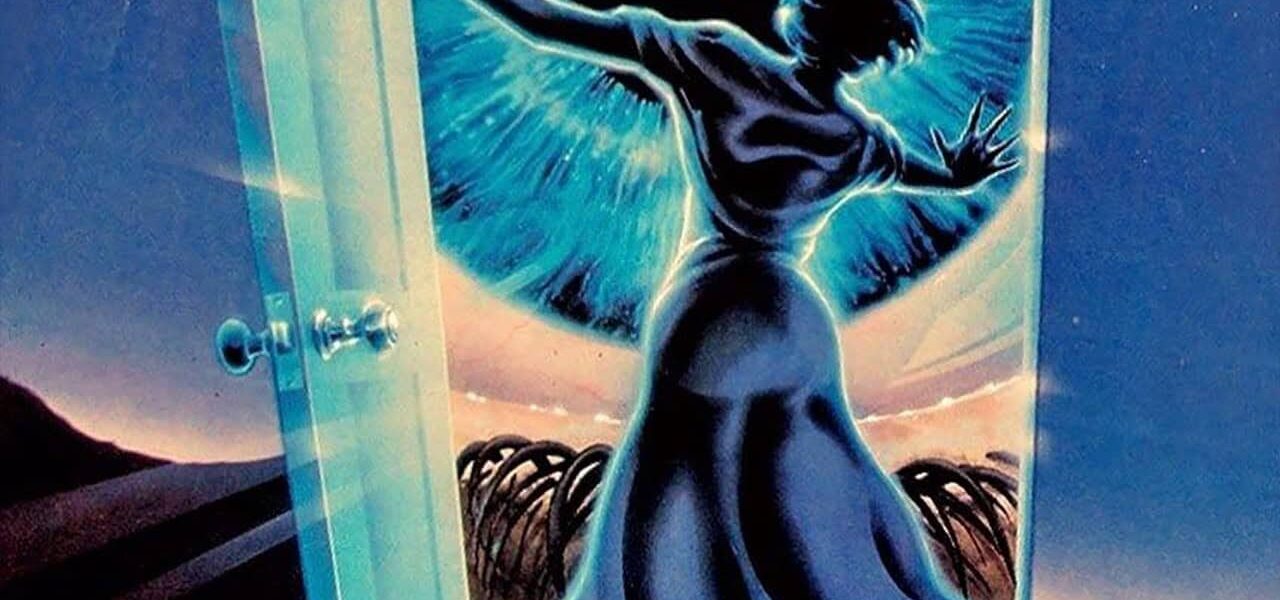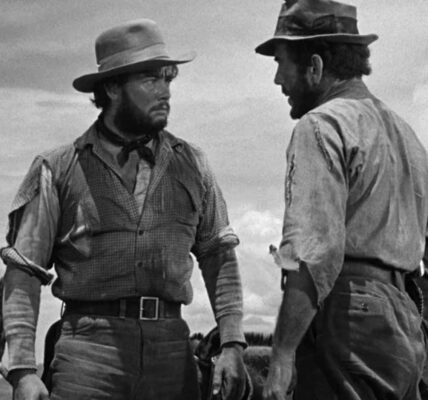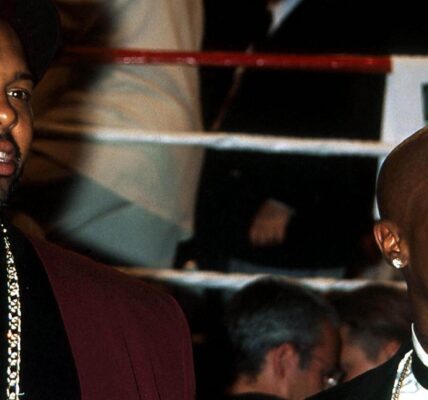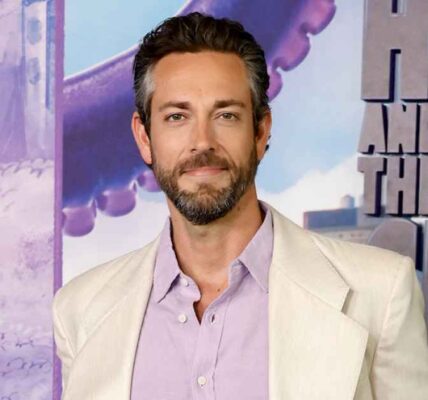By Gfr
| Published
The 1950s were the golden age of television. With the medium that makes its way in more and more houses, it was at this moment that television programs began to have a massive impact on pop culture. Television production was a booming market and the broadcasters sought to conquer this market with as much programming as possible.
As such, the variety of programming meant that many gender series have made their mark on a generation. Science fiction was no different. In fact, he won a huge cultural impulse in post-war America, because the progress of technology has inaugurated new visions of the future.

There is important science fiction Programs of this pivot era which always deserve to find a modern audience, so good human beings here at the Giant Freakin Robot have mounted in our time machine and brought back the 1950s science fiction television broadcasts which are still worth watching.
Flash Gordon

Star Wars DNA extends decades before this first opening ramp.
George Lucas was inspired by episodes in the original Flash Gordon series from the 1930s. They led to the development of the 1950s spectacle of the same name of the 1950s.
Flash Gordon and its allies traveled the 33rd century in their smooth spacecraft trying to keep the galaxy, constantly threatened by the madness and the machinations of a villain with twirling mustache with the nickname of the Oh-So-Menace, Paul Richards.
While we love this show as a star precursor Star TrekThe best thing about Flash Gordon is the performance of Irene Champlin as Dale Arden, whose intrepid scientist has shown viewers – not to mention the galaxy – that she is not the lady of distress.
Flash Gordon is an early science fiction icon whose influence is always felt to date. He walked so much Captain Kirk could run … or distribute.
The twilight zone

From 1959 and changing gender television forever, The twilight zone is a series of anthology created by Master Dreamweaver Plus Actor, Rod Serling. Each episode delivers a new tale and new terrors, exploring not only science fiction but also fantasy, horror and delicious mixtures of these genres and others.
Narratively, the twilight zone is supposed to be a different dimension, a reality that we just recognize enough like ours until the beginning of the nightmare.
There are many remarkable science fiction episodes such as strange and dark comics stranger Story “to serve man”, the apocalyptic personal tragedy of “Time quite finally”, the dystopian parable of “The Obsolte Man”, we could spend all day list our favorite episodes – let us know if you want to see this video in the comments – but everyone should watch all this show and find the episodes that speak to them.
When we talk about the most important television shows in the history of humanity, The twilight zone will always be in the conversation. Almost seventy years later, he still finds a way to draw new viewers. Open the door with the key to imagination and enter the twilight area.
Tom Corbett, cadet of space

Would you believe that someone defeated paramount towards the Starfleet Academy Show almost 80 years ago?
Tom Corbett, cadet of space is a show on the training of futuristic adolescents to be members of the solar guard. They roam the galaxy with charming misadventures in the context of their training during the job. Rather than the usual big bad fiction bad guys, these knights of starry space mainly meet natural disasters and must use a combination of their collective brain and advanced technology to save the day.
What we love most in this series is its incessant optimism and its belief in the power of science, the qualities that we find even more attractive now that the same idealists like Star Trek are transformed into Sloat Schlocky who seem more interested in stupidity than science.
Juvenile idealism meets ageless optimism in this spatial slice of life which represents the positivity of the golden age of science fiction to its best.
Science fiction theater

Years before tIt is twilight helped to define science fiction, the anthology series were already a form of popular programming, in particular Science fiction theater.
The show’s hook used a legitimately presented science to tell stories about alienTime travel, environmental disasters, and why man should not play with Mother Nature. Pamela Isley would have something to say about it.
Beginning in 1955, the series also used pseudoscience and charlatan. An example would be the episode “The Flicker” where a flashing television obliges a young man to commit murder by hypnosis.
Most of the episodes have been removed directly from the problems of American scientistThis makes it a fascinating time capsule of the way in which pop culture has seen science at the atomic age.
With many episodes on the dangers of technology, including an episode on humans, transformed into worker drones through an enzyme, it was the version of the 1950s of Black mirror.
Captain Video

The original science fiction series, Captain Video and The Video Rangers broadcast an astonishing 1500 episodes from 1949 to 1954, but there are only a handful of episodes that survived today.
Located in the distant future, Captain Video has led a team of rangers dedicated to the defense of truth and justice on earth and through galaxy.
In particular, the episode “I Tobor” presented the first robot character on television, and a young Ernest Borgnine played the villain recurrent Nargola.
Played live five days a week in a studio above a department store, Captain Video had no budget, but the series became a success and influenced more than 70 years of science fiction.
Rod Brown of the Rocket Rangers

In the 90s, fans debated if Star Trek: Deep Space Nine Was tearing off Babylon 5 or vice versa. Well, the story was repeated as a similar conflict played in the 1950s between fans of Tom Corbett, cadet of space and a later series, Rod Brown of the Rocket Rangers.
Brown stood out from its peers thanks to its autonomous episodes and a distribution of three main rangers, including the Rod Brown storage, the anxious and easily annoyed Ranger Frank, and the Relief Comic Chubby, the Ranger Wilby “Wormsey” Wormser.
Played live every Saturday morning, Brown was the precursor of the cartoons on Saturday morning in everything, the way in which the plot took place in each episode, the catchy theme song, and even the linked goods.
Rod Brown of the Rocket Rangers Perhaps considered an elite at the time, but it is also a live cartoon and indirectly responsible for decades of Saturday morning vouchers.
Tales of tomorrow

Stem cities Tales of tomorrow as a major inspiration for The twilight zone And it is not difficult to see why.
Tales of tomorrow is a unique mixture of pen and paper narration played on live television with the kind of raw energy that was only seen on stage.
Presenting the talents of the first science fiction writers like Arthur C. Clarke, Fredric Brown and CM Kornbluth, each autonomous episode presents stories on extraterrestrial meetings, scientific experiences that have turned badly and a dystopian future intended for an adult audience.
Tales of tomorrow Magic comes from its unpredictability. The actors would forget the lines, the accessories of Malandle and simply had to ride with the punches because there was no second catch.
You don’t believe us? Discover the episode of “Frankenstein”, in which the famous actor of the heritage La Chaney Jr. would have been so in a state of drunkenness during the recording that he always thought was in the general rehearsal.
Test the limits of early television programs, Tales of tomorrow is a fascinating watch because even when improvisation has sometimes become a necessity, the talent and the brilliant narration involved opened the way to the future series of anthology. Without Tales of tomorrowthere may never have been The twilight zone.
CODY commando: Sky Marshal of the Universe

CODY commando: Sky Marshal of the Universe is an essential visualization for anyone aspires to the days of science fiction series filled with extraterrestrial invasions, interplanetary jets and travel jets via toys plane accessories which are repainted to look like spacecrafts. Adorable.
Appointed by the American government to investigate the problems of catastrophic climate destroying planet earth, the Cody commando is equipped with a rocket and its faithful jetpack to go to the bottom of what is really going on.
Having reasons to believe that a merciless extraterrestrial dictator is responsible for the problems of the earth, Cody throws himself in the sky and does no expense to keep its planet away from certain destruction.
Tell all his story in only 12 episodes, CODY commando: Sky Marshal of the Universe Leaves you with constant cliffs full of daring escape, celestial confrontations and a mystery which takes place slowly through its short serial race. But the best game must be the noisy and heavy jetpack of Cody, which is extremely impracticable and far from stealthy.
Reminding us why we fell in love with science fiction in the first place, CODY’s commando The obvious limitations only add to its Campy charm, which makes it perfect for a quick weekend frenzy.
Men in space

Men in space Gerosis seriously a few serious points to take spatial exploration in favor of the fantastic spectacle of extraterrestrial invasions.
Colonel Ed McCauley directs various inhabited missions through the solar system, but there is no extraterrestrial antagonist in Men in space. Instead, our hero finds himself managing real disaster scenarios, including things like oxygen shortages and equipment failures. The series focuses on survival and problem solving during exploration unexplored territory.
Yes, special effects in Men in space are primitive according to today’s standards, but his desire to try the most realistic dangers of the fictitious dangers meant that he reflected solid science most often. This included its representations of pressure combinations, asteroid interception and construction of complex space telescopes before real attempts were made to develop such technology.
Decades ahead of his time, Men in space is an absolute treat to look at because it has not only proven to the public that the exploration of space is possible, but everything predicted the following inevitable stages towards human progress.
Do you have favorite science fiction shows of the 1950s? What is your favorite Twilight episodes and you want to hear ours? We want to hear from you in the comments. Give the video at the top and subscribe to the chain to let us know that we should make more lists like this.




